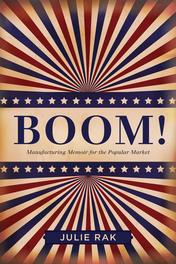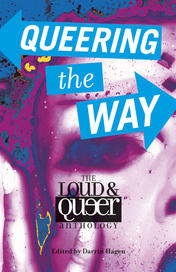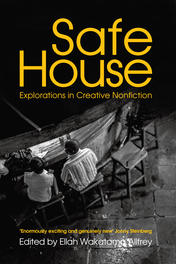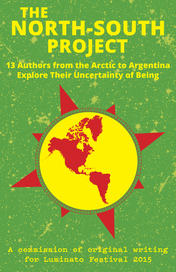General

Excerpt from Boom! Manufacturing Memoir for the Popular Market by Julie Rak
From the Introduction
This book is about the memoirs that are written, published, sold in bookstores, and circulated by public libraries for people like my grandmother: ordinary readers who are interested in the world around them but who also want to read about places and people that are not accessible to them in their immediate lives. It is also about books that my grandmother wouldn't have had access to yet, the books that are part of what is called the “memoir boom, ” a period roughly spanning the first decade of the twenty-first century, when the production and public visibility of American and British memoirs by celebrities and by relatively unknown people sharply increased. I do think that my grandmother would have greeted the memoir boom with delight, and perhaps even enjoyed the increasing numbers of memoirs by ordinary people who have led extraordinary lives just as much as she liked reading about the lives of the famous. In this she would have joined the thousands of people who participate in the memoir boom by buying, borrowing, downloading, and reading the memoirs that are part of it.
This book is not about readers, however, because other groundwork about what the memoir boom is, how it is produced, and what it means in contemporary life needs to be laid first. Even though she was not part of the current interest in non-fiction books about the lives of others, the focus I have placed on my grandmother as a reader does make evident something about non-fiction, and especially what critics often call life writing, that often gets overlooked. My grandmother, and readers like her, are the reason that the memoir boom exists, but so far, little critical discourse about memoir has had much to say about the books produced for this readership. The books of the memoir boom are produced by mainstream presses for large audiences, and perhaps that is why critics of autobiography tend to overlook them or not teach them in their classes (Couser 2012, 14). And yet, millions of readers like my grandmother still seek out these kinds of books precisely because they are not fictional. What is more, many readers appear to enjoy reading about the lives of others, in apparent ignorance of a chorus of disapproval about the books written for them. Why are so many of these stories produced and eagerly read today? Why are cultural pundits so suspicious of them? How can we understand the ways in which they are produced and received? In mainstream journalism, most analysis of the phenomenon, with the exception of Ben Yagoda's Memoir: A History (2009), has taken the form of backlash against aspects of the memoir boom. Other studies, like G. Thomas Couser's recent Memoir: An Introduction (2012), try to understand the memoir boom in light of the history of autobiography production in the United States. In this study of contemporary memoir, I wish to do something a bit different from the other kinds of studies of American memoir in circulation, whether they are by journalists or scholars of life writing. I want to change the way that we have understood memoirs so that we can see them as part of a production cycle as a way to explain how the memoir boom came about, and how it continues. I think that understanding how the book industry works today can help us see why the production of non-fiction has assumed so much importance. I also think that memoirs, particularly those of non-celebrities, have the potential to change the imagined relations their readers have with the lives of others: this is the source of their power and fascination at the present time, and the reason publishers continue to produce them. But exactly what does this change mean? What does it mean to want to enter into imagined relations with others at this time? Does it signify an emergent interest in community? Is it the latest development in neoliberalism that emphasizes the cult of the individual apart from community (Gilmore 2010, 658)? Is it a media industry takeover that sucks the life out of literary production because anybody can write a life story as part of a culture of self-help?



FUGEE
Hawa Jande Golakai
There’s a saying that goes, “You can’t go home again.” It offers no direction as to where you’re supposed to go. It’s meant to be poignant: some manner of existential examination of how things once lost can’t be retrieved, relived, at least not from the same perspective. I think. I’ve always been a little too literal for the deepness of sayings.
MARCH 16–22, 2014
DURBAN, SOUTH AFRICA
“Ja, but where are you from originally?” the journalist presses me.
Ah. This again. I’m one of the featured authors at Durban’s seventeenth Time of the Writer arts festival, and at these events, being grilled about “otherness” is a train that’s never late. “You can’t be unoriginally from somewhere. I don’t think that’s a thing.”
She waves her hand. “But you know what I mean. You’re quite accomplished, considering.” She catches herself and flinches at the “considering.” I let it slide. “You’ve lived in South Africa for years, right? You’ve gotten most of your education here?”
I smile. She’s doing that cherry-pick thing people feel obliged to do with foreigners, timeline the best of your attributes so their country can take credit for it. “Postgrad education,” I correct. But I’m tired and cranky, not exactly shipshape for interviews. It’s not going to matter anyway. No one reads articles about writers, and we don’t much care — just buy the book.
“So. West Africa. There’s that virus scare starting up at the moment.”
I sit up. “It’s across the border. In Guinea.” Is she putting this in the piece? Why do I keep clarifying where the reported cases are from whenever I’m asked? It’s not like viruses need visas to travel.
“You mentioned you moved home two years ago. Why’d you decide to go back?”
I want to say it was less a deliberate decision and more a quest for closure, a need to tie up a loose end that had dangled, frayed and fraught, for too long. But I’ve stopped saying this. I morph into a mumbling cretin when I do, as if afraid the real-real reasons (frustration much? drifter) will seem ridiculous. People then feel the need to tilt their heads and nod, like it’s noble and they get it, or they don’t but won’t be rude enough to admit it.
Instead I beauty-queen my reply: it was time to move on, to help my recovering country. To revert fully to my native state, which, aside from the odd visit, I haven’t done in over two decades. To see how much it’s changed, the land that small me took for granted she’d grow up in, get a job, marry, have piccaninnies, likely grow old and die. Life has taken me down brighter, more meandering lanes, for which I’m very grateful. The journalist nods to my words, scribbling away.
When the article comes out, it says I went home because it’s where I’d always wanted to get married and have children, as if finally I can stop being a loser and make it happen. My best friend calls me to laugh; she’s just learned something new about me. I sigh. No one reads articles about writers anyway.
MARCH 23–APRIL 12
JOHANNESBURG, SOUTH AFRICA
My friend Fran laughs like a bawdy barmaid in a Chaucer tale, a comforting sound. I’ve decided to round out my stay to a month, so I’m staying at her flat, plotting insidious ways of never leaving. Our mouths run all day, about shoes and sex, politics and career changes, original versus fusion curry recipes, TV content. The meaningful mindlessness that any red-blooded woman who lives in a male-dominated household doesn’t know she misses until the tap is turned back on. Her spare bedroom is a cloud of amenities. SuperSpar is five minutes away, full of strawberries, peaches, and other edible exotica that I never see or can’t afford in Monrovia. The guy behind the counter at the Clicks pharmacy is so delicious he’s practically a food group. I trawl the malls, stoked to be back in Jozi, home of posh cars and cinched-waist lovelies with awesome hair. Feeling uncouth, I get a Zimbabwean hairdresser to braid me; her price is a blip on my radar. I’m balling in dollars.
On rare occasions, Fran gets serious. “Ebola’s making the news online. You know it’s getting serious when it makes the news.” She glances at me. I stay quiet. “Are you considering going back to your job?”
“I’m at my job,” I answer tersely. “National Health Coordinator at Ministry of Health” is a title I’ve buried, along with career dissatisfaction. After all those years studying to be, then working as, a medical immunologist, I’m now an author, a career switcher, trying to fade out the former as I find my feet in the latter. The irony is I left a tough profession that involved essays and articles that few understood to do “what anyone who knows the alphabet could manage,” my critics say. Writing isn’t respectable, not in Africa anyway. I’m considered a sufferer of “Me Disease,” an unrepentant member of the selfish generation, we who shirk duty to follow pipe dreams. There’s little consideration for how hard it’s been to let go — which I still haven’t done fully — for how much I question myself.
“Do you think they’ll be able to contain it?” Fran asks.
“No.” Snip. Snarl. I cringe at my tone. She means well. We drop it, switch back to safe terrain. A guy back home has thrown his hat into the ring for my affection. I don’t know. Men are dicks … but then again, men have dicks, so. I’m vacillating between uncertainty and blushes. We’ve spent more time talking and texting now that I’m on the other side of the continent than we did when I was home; social media makes Bravehearts out of us all. Fran does her laugh: please give Contender a whirl. Hhmmm.
At night, though, on my laptop, I’m stealth-surfing the web. Numbers are climbing in Guinea, and now Sierra Leone, but I know the true figures are understated. Through the grapevine at my old job, I hear they’re not really doing anything or mobilizing forces to stop it leaking through the borders. Immobile. Do we even have forces? The Neglected Tropical Diseases Unit — they contend with elephantiasis and yellow fever, last of the unicorn afflictions. Is ebola not contemporary enough, and if so, will it get an upgrade fast enough to make us take it seriously? Because hemorrhagic viruses are the last word in seriousness. And we don’t have testing centres. We won’t know what measures to take. We don’t have anywhere near enough doctors. On a normal day our one major hospital, John F. Kennedy Medical, is heaving with humanity, all waiting for hours on end for treatment.
“But it’s across the border mostly,” says my ex-colleague. “And we weren’t really infectious-infectious. You were one of the few real disease scientists we had. And you left.” Pause. “Anyway, you know our government. These old guys move slow. Let’s see.”
Guilt bites a chunk out of me. I kick it in the teeth. It goes away. Well, retreats. Into a dark corner, where it squats, eyeing me, gnawing on something I didn’t give it permission to eat. I don’t lock it up or put it on a leash. I want it to come back and harass me. We have a weird relationship.
APRIL 13
10:00 P.M.
OLIVER TAMBO INTERNATIONAL AIRPORT
JOHANNESBURG, SOUTH AFRICA
The airport is cold. Winter should be winding down, but Joburg tends to be clingy when it comes to its seasons. I’m double-layered, jacket in carry-on just in case. I don’t mind airports; they’re like hospitals — you do your time and get out. Mostly. I do hate this particular red-eye, though. Departure: one-frickin’-thirty in the morning. The airline assured me the flight would leave an hour earlier than usual, but it seems they didn’t take into account that the plane needed things like cleaning and refuelling before they made their wayward promises, so it looks like we’re taking off the same time. I can’t wait to leave. Airports get seriously wrong, creepy, after all the shops close. Like abandoned warehouses. Unlucky stragglers huddle by the gates, bleary-eyed, giving each other grim stares. And there are always a few gratingly cheerful chipmunks who want to story-of-my-life you until the boarding call sounds. I walk around to avoid them, Viber-flirting with Contender as I pace.




